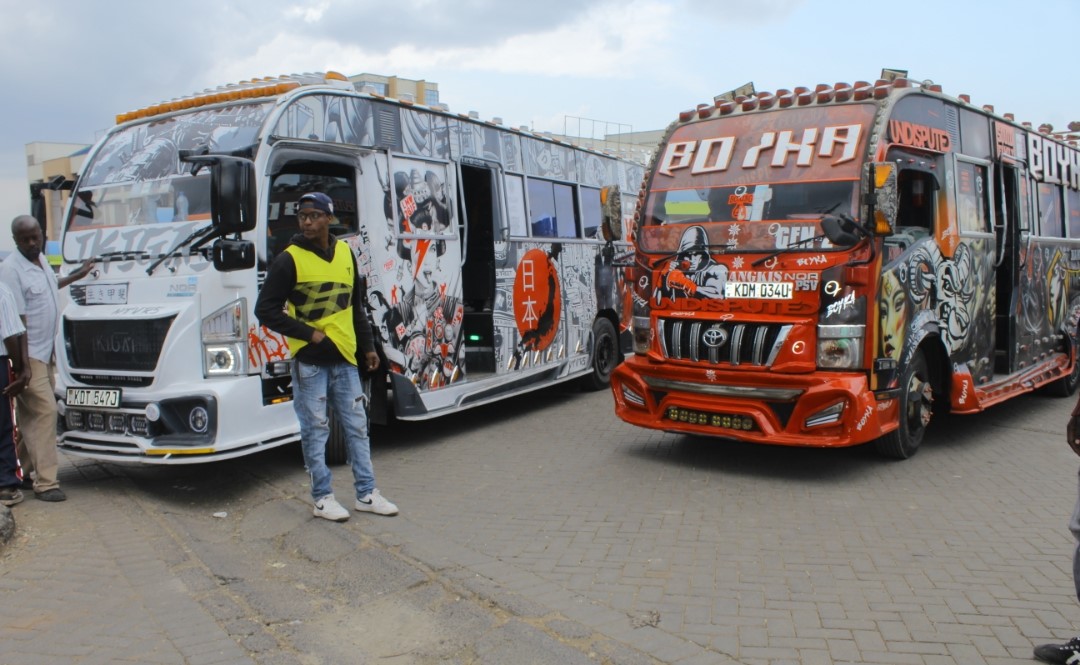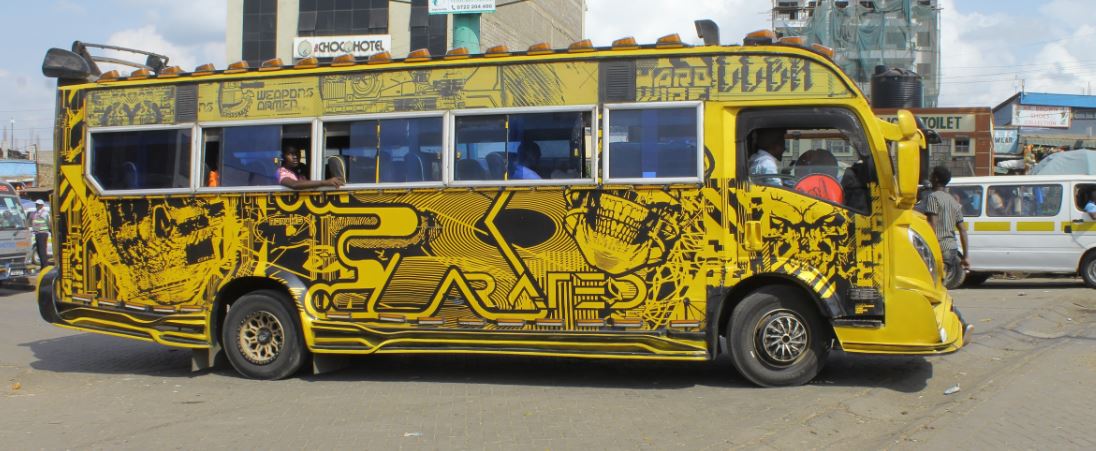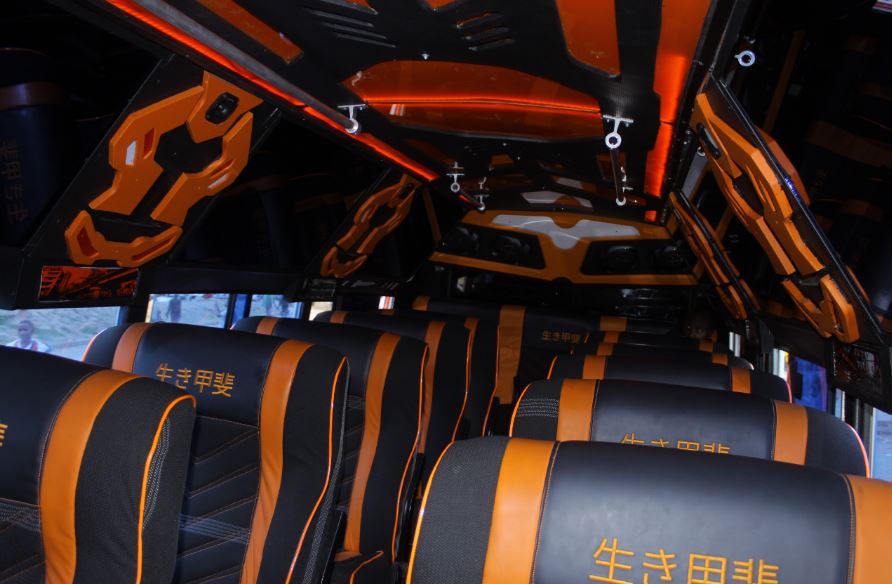

For a long time, Ngong town, in Kajiado North, has been a centre of creativity, opportunity, innovation, and job creation
Through the Public Service Vehicles (PSV), the matatu industry, a beehive of activities, is witnessed, especially with the vehicles commonly known as (nganyas) cementing the identity of the great town.
This is a representation of the culture that the residents of the area have identified with and accepted as part of their lives, eventually blending culture and creativity with hustle.
The youth especially have expressed themselves through artwork and fascinating designs in the vehicles that leave the citizens amused with the amount of talent displayed by the young generation.
The PSVs or matatus, along the Ngong–Nairobi corridor have become moving hubs of creativity filled with vivid graffiti, soothing music, comfortable interiors, and well-thought-out lighting patterns that serve as both transport and a stage to showcase incredible talent.

For decades, these matatus have been central to the mobility of millions of residents in the area, but beyond the transportation of people, the vehicles represent a thriving urban culture that has greatly influenced music, fashion, language, and visual art.
Through this creativity, what began as a basic mode of transport has now evolved into an entire industry that supports a lot of jobs in the region.
Drivers, conductors, graffiti artists, sound technicians, interior designers, and mechanics are among the people who greatly benefit.
The government has continued to support the industry through bodies like the National Transport and Safety Authority (NTSA) by putting regulations in place to ensure compliance with traffic laws and enhance road safety.
This move is meant to ensure that citizens are safe while commuting in the vehicles in order to increase efficiency in the sector that would eventually be in a position to support businesses that enhance and improve living standards.

Speaking to KNA, Simon Mwangi, a longtime driver from the town says that the designs and styles play a major role in their daily business because they help attract customers who always prefer to commute in vibrant matatus.
Mwangi adds that through artwork, a vehicle is able to stand out in a crowded market and hence beat competition from other crew members in the sector.
“Matatu culture is part of our lives; we have embraced and made it our identity. The artwork, the language, and the music connect us to our customers, making it easier, faster, and more efficient to interact and eventually do business in a seamless manner,“ said Mwangi.
Most matatus serving Ngong operate under organized Saccos such as Nangkis, Ntvrs Sacco, and Luminous Sacco along key routes including Ngong-Nairobi CBD, Ngong-Karen, and Ngong-Kiserian.
Although the matatu culture is a pride in the region, local residents have mixed reactions and views about the growing sector, appreciating the convenience but raising concerns over certain practices.
Martha Moraa, a business lady in Ngong Town, told KNA that despite the ‘nganyas’ being of great importance to the people of the region, there are a number of issues like reckless driving, unruly behavior, loud music, and selective enforcement of traffic rules that should be addressed.
“Matatus brought progress, but respect is important, discipline is key, and conductors should avoid abusive language. These vehicles make transportation much easier and more affordable, but loud music and reckless driving worry me a lot," Moraa said.
For Ngong residents, matatu culture is both a lifeline and a challenge. While it reflects the spirit and innovation of a growing town, they call for greater responsibility, courtesy, and safety in order to ensure the system works for everyone.
The matatu culture in Ngong reflects a broader national phenomenon that blends transport, entrepreneurship, innovation, and urban art.
The sector has evolved from basic commuting to a world of customised vehicles, graffiti art, booming sound systems, street slang, and an economy driven largely by the youth.
As the government works with other stakeholders to improve transport infrastructure, it also recognises that the matatu sector holds a special place in the hearts of citizens.
It’s a place where culture, economy, and innovation meet.













